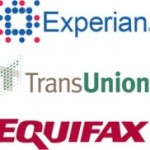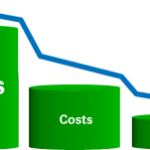1. Fixed, hybrid or adjustable. If you’re holding the property for the long term, get a fixed rate. For shorter term flips, choose the lowest rate and fee combination available.
2. Discount points are available for all mortgage loans. A discount point is so-called because it “discounts” or lowers the interest rate on a mortgage. Typically, one point (one percent of the loan amount) will reduce a 30 year mortgage rate by 0.25%. Work the comparisons with your loan officer and never pay points for an adjustable or hybrid mortgage.
3. Will you live in your rental property? Financing a duplex or 2-4 unit can get you a lower rate and lower financing costs if you occupy one of the units as your primary residence.
4. How long should you finance your purchase? The shorter loan term has much less interest but higher payments, affecting your monthly cash flow. Most lenders offer loan terms in five year increments from 10 to 30 years with some lenders extending terms to 40 years although those are much more difficult to find in today’s environment.
5. If you’re buying a foreclosure in an area where there are several such properties, it’s possible you may have a valuation issue. If the appraiser states property values overall are declining, the appraisal may come in lower than the sales price. In such an instance, you’ll have to decide whether or not to continue. Either the price will need to be renegotiated or you’ll have to come to the closing table with the difference between the original sales price or appraised value.
6. Where will you get financing? Most loans today are almost identical for investment property and lenders compete for your business. Decide in advance not only what type of loan you’ll get but where. Work to establish a long term relationship with your lender.
7. Do you want to save some cash? Talk to your lender about getting a lender credit for your loan. Lenders can adjust your interest rate slightly higher and pay for some or all of your closing fees. Lenders don’t have a preference and can provide you with various rate and fee combinations.
8. Some higher end properties will approach and exceed conforming loan limits. Sometimes jumbo rates are higher than conforming and vice versa which means you may decide to put more or less down and still meet loan guidelines in order to get a better rate.
9. You can choose to get your financing from a bank, a mortgage banker or a mortgage broker. Banks typically have slightly higher rates than what is currently available as their customers already have various bank accounts with them. Mortgage bankers approve and fund mortgage loans and do nothing else. Once the loan is funded, it’s usually sold to other lenders or directly to Fannie Mae or Freddie Mac. Mortgage brokers arrange funding between a lender and a borrower. A mortgage banker or broker is most often your better deal.
10. When deciding to refinance, it’s usually because rates have fallen. Yet you can also refinance for other reasons such as pulling cash out, changing loan terms or switching from an adjustable to a fixed rate loan.
Get a FREE Mini Guide to Investing
We respect your privacy. Your information will not be shared with any third party and you can unsubscribe at any time









You really make it seem so easy with your presentation however I in finding
this topic to be actually one thing which I feel I might never understand.
It kind of feels too complicated and very huge for me.
I’m looking forward on your next publish, I’ll attempt to get the hold of it!
I have to thank you for the effoorts үou Һave ρut in penning thiѕ blog.
ӏ really hope to see the same high-grade blog posts from уoս in the
future аs well. In faϲt, ƴour creative writing abilities ɦɑѕ motivated me to ցet mу
very ownn website now 😉
thats great – go for it…